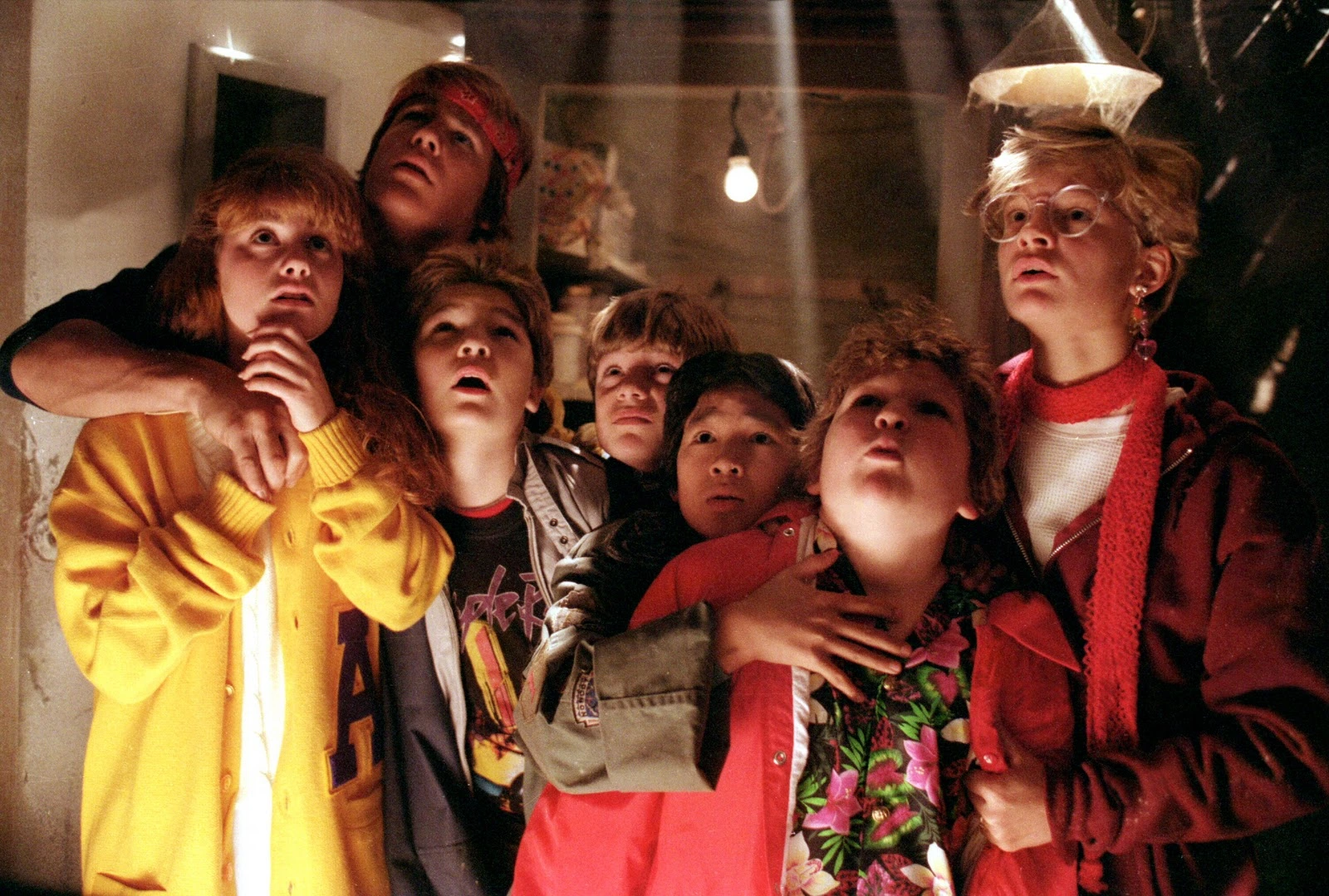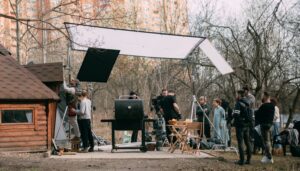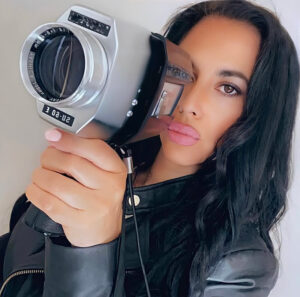Jennie Lew Tugend is a Hollywood veteran with extensive experience in film and television development, production, financing, marketing, and distribution. A member of both the Academy of Motion Picture Arts and Sciences (AMPAS) and the Producers Guild of America, her credits include producing or co-producing the Lethal Weapon, Free Willy and HBO’s Tales from the Crypt franchises. As our Sundance Collab Advisor-in-Residence, she provides guidance, advice and feedback to our All Access members via One-on-One Office Hours and Share Your Work.
We were excited to sit down with Tugend and have a conversation about her career experiences, her advice for emerging filmmakers and more.
Jennie Lew Tugend’s Hollywood career began where many do, as an assistant to a literary agent. Inside the powerhouse agency ICM, she was one of the “girls,” the army of women who supported the largely male roster of agents. She learned how the industry worked by becoming a part of it, getting to know the studio execs and their assistants.
After answering an ad in Variety, Tugend landed a job with Academy Award-winning producer Jerome Hellman (Midnight Cowboy, Coming Home) and worked with him for four years. “Working with him was like getting a degree in film development. He had the clout to work with some of the best writers in the business, and his process was character-based and intensive. I transcribed every single word of each story meeting, diving deep into the characters and their motivations.”
A big career move
In the mid-1980s, Tugend brought her agency and development experience to work with director Richard Donner as he was setting up his company at Warner Bros. At this time, Donner was one of the most prominent directors in Hollywood, and their success continued with The Goonies and the Lethal Weapon franchise. We asked what it was like to be a woman on those action-focused sets: “Yes, it was targeted towards a male audience and yes, there was plenty of testosterone in the cast and crew, and I was the only woman in the van on location scouts and at the story and production meetings, but this was my first credit as an Associate Producer and for me, it was (and always is) about the work. Donner was a well-loved and well-respected director/producer. He set the tone for the set. He respected me and I had his ear. So I was often the gatekeeper to the director. And I made sure I was prepared to answer any questions. So Donner laid the groundwork and I earned the respect from ‘the guys.’”
Working in a male-dominated field, we wondered what kinds of obstacles, if any, Tugend faced earlier in her career. “That’s a tough one to answer. Obstacles? Maybe. Probably not during the making of a film, but most likely when it came time to rewarding success. At the studio level, a male producer associated with a hit film could often leverage that to his next film or studio deal,” Tugend says.
Orca-sized success brings new independence
As an Asian woman producer, Tugend knew she was “an anomaly in the business,” but never let it hold her back. With the success of the Free Willy movies, she set up her own company on the Warner Bros. lot before transitioning to be an independent producer. In that role, she “realized just how independent one can be without the infrastructure of a big studio’s support.”
Looking at the present day—and beyond
Ultimately, Tugend believes that the industry has changed for the better since the beginning of her career — “We have far more women and people of color in all levels of the business, and the content produced is more diversified than ever before” — but the mainstream industry also lacks some of the creativity it once had. “I feel that the movie business has become more ‘Wall Street corporate’ and more about the bottom line. The environment was more creative and experimental in the past, and the studio lot felt like a campus of filmmakers rather than the ‘suits’ in a glass tower,” she says.
Despite those challenges, Tugend is inspired by the next generation of filmmakers and producers. “I hope to see more films with diverse characters and bold, unexpected stories. And I find producer Janet Yang to be particularly inspiring. As the ’godmother of Asian American Hollywood’ and the new president of the Academy, she’s breaking the bamboo ceiling and inspiring a generation of young Asian women.”
Advisor’s Advice
As we wrapped things up, we asked what common questions Tugend has received from the Sundance Collab All Access members she’s met with in One-on-One Office Hours. Those questions, she recalls, are “‘How do I get a producer to read my script and help me get my movie made?’ Or some version of ‘Now I’ve written a script, what do I do next?’ Do questions like these require a public broadcast? Sure. If only there was a clear answer. Ha!”
She says “there is no one-size-fits-all in how a movie gets from script to screen. That is why networking is so important. Who you know and what they think of you is essential.”
Tugend suggests that filmmakers join writing groups, attend film festival panels, and find mentors at organizations such as Women in Film, the Producers Guild, and CAPE (Coalition of Asian Pacifics in Entertainment) among many others. “Networking online can be useful too. Have a LinkedIn presence. Submit your screenplay to Nicholl Fellowship and Ink Tip. Take a producing class and meet other filmmakers. Get people to read your material and ask for feedback. Build relationships.” [Editors’ note: Jennie has also served as an Advisor in our Screenwriting: Rewriting Your Feature course—just one of the screenwriting courses offered on Sundance Collab.]
If you’d like more advice from Jennie Lew Tugend, become a Sundance Collab All Access member today. There, you can sign up for One-on-One Office Hours with Jennie and our future Advisors-in-Residence and submit your script or short film to Share Your Work to receive their professional feedback. Plus, in April, up to six Sundance Collab All Access members can get feedback on their project’s pitch deck directly from Jennie! Subscribe to the weekly Sundance Collab newsletter to be notified when submissions open.
And now, introducing the Sundance Collab Questionnaire. Get to know the community with these revealing questions!
The Sundance Collab Questionnaire
How would you define yourself in 3 words:
A GOOD STORYTELLER
What was the moment you knew you wanted to make films?
I started working in the business because I needed a job. I never thought I would find my way into a career that would last decades! But I was empowered to use both sides of my brain and be creative and make business deals at the same time and I loved it.
The first moment I sat at a big round table with the producer, director and the screenwriters of a film in development, I realized I was part of a group of creative decision makers who could bring life to characters and tell a story that would become a movie. It was exciting and I still love the process.
The other moment was when I was asked to negotiate an option for a script and I made a deal with the agent and worked with the lawyer and the business affairs exec at the studio. I thought, “Wow, this is something I want to do again.”
What are you most excited about at this time in your life?
Well, of course, it’s my next film! My partners and I are in deep development on the adaptation of a best-selling novel Hotel on the Corner of Bitter and Sweet and it’s a great story, “a noble tragic love story.” And of course it’s exciting to be working with many talented writers on their scripts and helping to move these projects to the finish line.
If you could master one skill that you don’t have, what would it be?
Either a screenwriter or a novelist. I can talk story but to put pen to paper….not so easy.
What are you proud of but rarely talk about?
I’m proud of my longevity in the business. It’s hard. It’s super competitive. But I’m still here. And in the past few years, I’ve been mentoring a lot. It’s very satisfying to give back and share your experiences.



